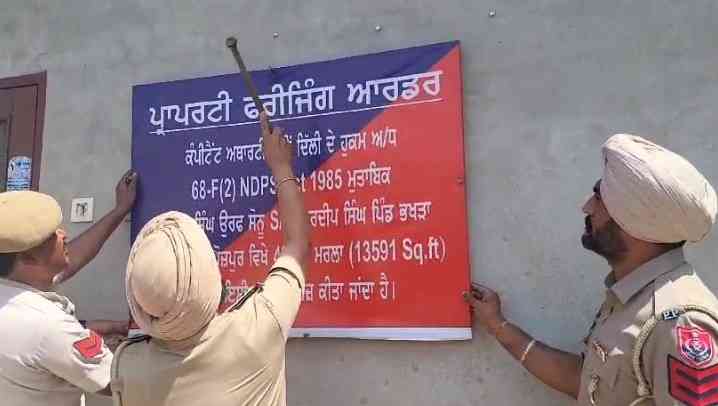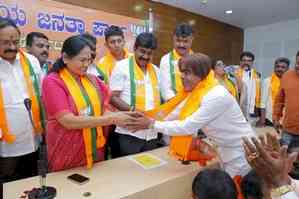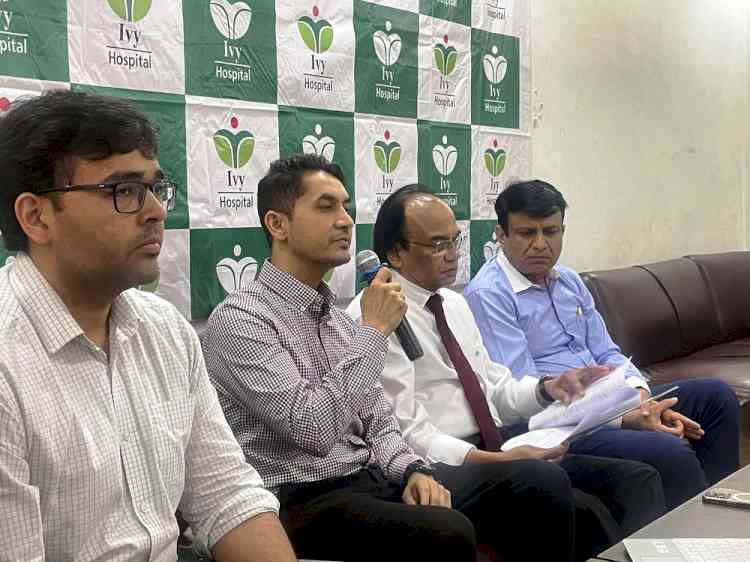One Man’s Trash is Another Man’s Gold: Opportunities in the Agri and Solid Waste discussed at PU

Chandigarh, April 23, 2019: 5th workshop of Swachhata Action Plan (SAP), a high impact event, on the theme, ‘Management of Biomass (Agri waste and Municipal waste) into Bioresources’, under the aegis of Department of Science and Technology (DST), Government of India, was organized by DST-Centre for Policy Research, Panjab University, Chandigarh in association with Chandigarh Region Innovation and Knowledge Cluster (CRIKC), here today.
The proceedings of the event were kicked off by address of Prof Shankarji Jha, Dean of University Instructions, Panjab University, who insisted to look at the holistic development of agriculture with special focus on Agri-waste management, in terms of natural philosophy, taking examples from Upanishads.
The Chief Principal Secretary to CM (Punjab), Mr. Suresh Kumar, who graced the occasion as a chief guest, reiterated that Punjab Government was all set to tackle the problem of solid waste management and looked forward to support from Central Government.
The Keynote address was delivered by Dr. M H Mehta, a Padma Shri awardee, who heads the Gujarat Life Sciences in Ahmedabad. Dr. Mehta highlighted the issue of 20 day window from paddy to wheat transition, which makes in situ remediation of Paddy straw as a promising solution. He demonstrated application of customized microbial consortium, which has been successfully practiced in Gujarat and Maharashtra. This was welcomed very enthusiastically by the farming community.
A senior scientist, Dr. P Shanmugam, from CSIR-CLRI, Chennai, shared the successful setup of various Biogas plants through-out the world, with a specific community level low-economy model for countries like Peru. He has also set up a one of its kind horizontal digester in UK. The event also witnessed high-powered deliberations on Bio-refineries by Dr. R K Jain from UNIDO, Delhi and Waste valorization strategies by Dr. Sudesh Kumar from CIAB, Mohali; and Bio-Fuels.
The farming community, represented by Jang Bahadur Singh Sangha, Mr. Vikram Ahuja and Mr. Rashid Hassan, also laid out their challenges for the Industry and Academia to work upon and offered their fields and other facilities for trials of innovative technologies.
The industry, represented by Mr. Anil Kumar, Executive Director, Shreyans Industries Ltd., also pitched in very enthusiastically during the panel discussion, sparking the idea of using Corporate Social Responsibility to its full potential to resolve the problem of Agri-waste management. Adding further to it, Mr. Rohit Khaitan from Kuantum Papers Ltd., suggested that revamping of state policies relating bio-fuel production, will aid in reducing the dependency of the country on import of crude oil.
Dr. Anita Aggarwal, Scientist E, DST, GoI, introduced the theme of the workshop and stressed upon the need to bring all the stakeholders together for an inclusive and sustainable solution. Dr. Jatinder Kaur Arora, further urged the forum to brainstorm ideas in order to formulate viable recommendations to the government and briefed about the initiatives of Punjab State Council for Science and Technology in the theme area.
Prof. S S Marwaha, Chairman, Punjab Pollution Control Board (PPCB), shared some of the initiatives of the PPCB such as door to door awareness programmes relating to harmful effects of stubble burning. He also urged the farming community to join hands with the regional institutes and the industry to execute the 3Rs(Reduce, Reuse and Recycle) strategy in this region.
The event culminated with a panel discussion, led by Mr. K S Pannu, Secretary, Agriculture and Soil Conservation, Punjab and steered by Prof. Rupinder Tewari, Coordinator, DST-CPR at Panjab University. It was equally represented by both Industry and Academia and scrutinized the dynamics of managing agri-waste in the most sustainable manner. Mr. Pannu quoted the Gurbani, saying that ‘whatever comes from the soil, must go back to it’.
The event witnessed informal interactions between the government bodies, scientific community (scientists and research scholars), farming communities and Industries and served to set a strong foundation for an action oriented resolution.

 cityairnews
cityairnews 















